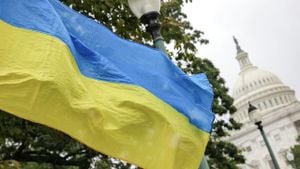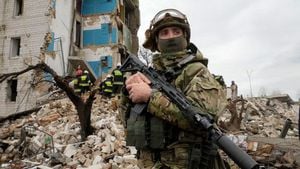Over the past few weeks, Mozambique has seen some of the darkest days of its political history, following the contentious presidential elections held on October 9, 2024. The elections, which resulted in the ruling party Frelimo securing over 70% of the vote, have been met with skepticism from opposition groups and have ignited widespread protests across the nation.
The aftermath of the elections has been marked by severe unrest. At least 110 people have died as demonstrations erupted throughout the country, initially sparked by the announcement of the election results which many allege were rigged. The opposition party, led by Venancio Mondlane, has claimed fundamental irregularities during the voting process, which were highlighted by various international observers. Mondlane is currently out of the country for safety reasons but continues to galvanize support for protests via social media platforms.
Protests have escalated tragically, turning violent as clashes broke out between security forces and demonstrators. Organizations like Amnesty International reported significant casualties, noting at least 357 individuals shot during protests, with 329 of those attributed to security forces’ excessive force. The government's reaction has been criticized as extraordinarily heavy-handed, drawing condemnation from various rights groups and prompting fears of deepening political dissension.
The humanitarian crisis extends beyond mere deaths; over 3,500 arrests have reportedly occurred, many of which include opposition supporters and regular citizens exercising their right to free assembly. Protesters have retaliated against these crackdowns with aggressive actions, including arson against police stations and government buildings, marking the protests as the largest public upheaval since Mozambique gained independence from colonial rule.
The political backdrop of this turmoil is complex, rooted deeply within Mozambique's historical narrative. Frelimo, which has governed Mozambique since independence from Portugal in 1975, has been frequently accused of authoritarianism, electoral manipulation, and suppressing dissent. This latest round of elections was supposed to demonstrate progress toward democratic governance, but instead highlighted systemic weaknesses within the country’s electoral framework.
Economic forecasts are grim. Analysts have downgraded Mozambique's GDP growth estimates for 2024 and 2025 from previously projected figures, attributing the shift primarily to the political violence and instability hindering economic development initiatives. Monkeying from previously optimistic projections of 4.4% growth, the new forecasts reflect economic unease, estimating only 3.9% for 2024 and 3.2% for 2025. There are fears foreign direct investment could also be jeopardized, particularly as major projects like TotalEnergies’ natural gas exploration may face delays due to the unrest.
Globally, the human rights situation has spurred outrage among international communities, including calls for investigations by the Southern African Development Community (SADC) and the African Union. Yet, responses have often been deemed insufficient, focusing more on condolences rather than taking firm action against the Frelimo government's increasingly aggressive policies.
The crisis is prompting serious scrutiny of Mozambique’s democracy and governance practices, raising questions about how the country can move forward from this point. Advocates for democracy and human rights are urging for significant international pressure on the government to comply with constitutional mandates and uphold citizens' rights.
The future of Mozambique remains uncertain as the nation grapples with mounting violence, political unrest, and growing distrust among its citizens. Only time will tell whether Mozambique's leadership will respond to the rising calls for accountability and reform, or whether it will continue down this perilous path of violent repression.



